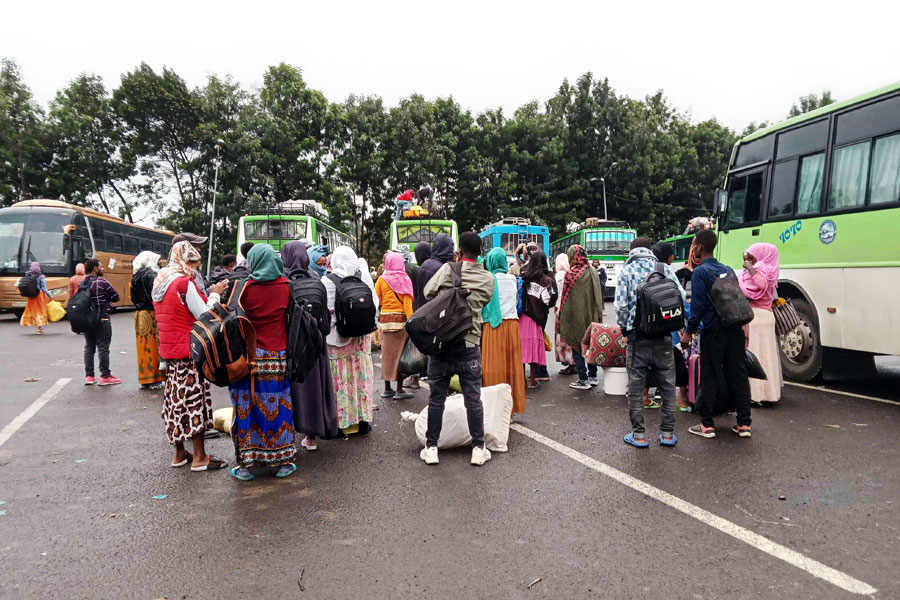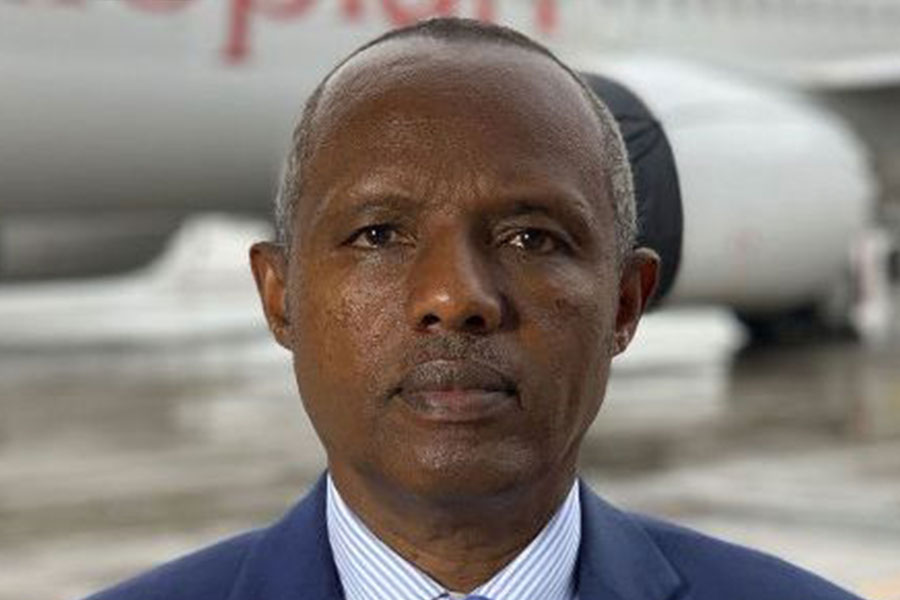
Verbatim | Jan 12,2019
Sep 2 , 2023.
An unfolding horror story revealed the human cost of desperate migration in the arid expanses between Saudi Arabia and Yemen. Enticed by promises of economic opportunity, hundreds of thousands of Ethiopians — each a victim of the triple threat of political instability, ethnic tension, and economic ruin at home — seek sanctuary. Yet, upon arrival, the sanctuary morphs into a mirage. A recent report by Human Rights Watch (HRW), detailing mass killings at the Saudi-Yemen border, exposes the brutal reality.
Perhaps more unsettling should be the authorities' disquieting silence after the depressing revelation.
This crisis is a Gordian knot of economic destitution, political vacuity, and social despair. Ethiopia, marred by a growing lack of economic prospects, volatile politics, and seething militarised conflicts, is a breeding ground for hopelessness. Human traffickers, in an audacious display of exploitation, add fuel to the fire. Saudi Arabia, a country flowing with oil but parched with empathy, deported nearly 100,000 Ethiopians last year. Half of these migrants hail from regions devastated by conflicts and drought. But the horrors do not end with deportation.
Wanton killings have been documented, illuminating the dangers of such desperate journeys. The Human Rights Watch's 73-page report, released in the same week that Ethiopia received a nod to the BRICS bloc, uncovered that "Saudi guards used explosive weapons to kill some migrants and shot at others from close range" in the five months beginning in March 2022. This resulted in the deaths of hundreds of Ethiopian migrants attempting to cross to Saudi Arabia through Yemen. The organisation called this an abuse that "may amount to crimes against humanity."
Ethiopia's eerily muted reaction is symptomatic of a broader malaise, a paralytic condition perhaps exacerbated by its ongoing domestic troubles. The Ethiopian Ambassador in Jeddah still enjoys his posting, and the Saudi Ambassador in Addis Abeba has not been summoned for a difficult conversation. A terse, 82-word statement from Ethiopia's Ministry of Foreign Affairs, declaring the "excellent relationship" between the two countries, is a pitiful footnote to a dreadful saga.
It is not as if Ethiopian leaders are unaware of the travails citizens face abroad. After all, Ethiopia's recent inclusion into the BRICS bloc came the same week that the Human Rights Watch report was published, pointing out the Saudi guards' lethal measures against Ethiopian migrants. Ironically, Saudi Arabia's senior officials were in the same room where Ethiopian delegates attended the event both countries were invited to join the BRICS.
Prime Minister Abiy Ahmed (PhD), who travelled to South Africa for the event, hailed Ethiopia's acceptance to the emerging markets bloc while downplaying his country's tribulations as "minor problems". It should serve as a pause.
Could Ethiopia's leadership be engrossed in a game of political optics, consciously opting to don rose-coloured glasses even when staring at a canvas of despair?
While Israel whisked away 200 of its "nationals or people eligible for citizenship" from conflict zones in Amhara Regional State, the federal government seems content with mere social media missives. There is a chasm between Israel's proactive measures and Ethiopia's digital platitudes, yet even a modest increase in governmental action would do much to restore public faith.
To the Prosperity Party (PP) — the governing political outfit — this tragedy could have offered an untapped opportunity for soul-searching. The proclivity to turn a blind eye to the dark underbelly of migration woes is a disturbing feature of the Prosperitans' tenure. This stubborn optimism — despite grim realities — reveals either a breathtaking audacity or a perilous detachment from facts. Either way, it could spell disaster.
The migration quagmire is hardly a mere byproduct of Ethiopia's woes. Researchers Kerilyn Schewel and Asmamaw Legass of Duke Sanford's Centre for International Development posit that Ethiopia's economic development and social transformation also drive migration, adding another layer of complexity to the crisis. With over one percent of the country's population involved in migration, Ethiopia is Africa's sixth-largest source of migrants—a disturbing superlative.
A multi-pronged strategy is the need of the hour. The Ethiopian diaspora, a potent force, can flex its political muscle to raise awareness and petition foreign governments for action. Non-governmental bodies with expertise in human rights and labour conditions can come into play. International organizations, including the United Nations, are well disposed to use their platforms to exert pressure on Ethiopia and host countries for accountability and systemic reform.
On the domestic front, it is upon the federal government and regional states to address the root causes driving this mass exodus, ranging from employment creation to political stability. International conventions on migrant workers, human trafficking, and forced labour require not mere signatures but robust implementation. A country at peace with itself, bolstered by economic progress, can wield the clout needed to protect its citizens. By resolving its internal issues, it can offer its desperate citizens what they currently seek abroad: a better life with hope and dignity.
The Ethiopian migration crisis is not just a story of loss and despair but also an indictment of institutional failure. The unforgiving desert separating Saudi Arabia and Yemen may be a crucible of human suffering, but the silence emanating from Addis Abeba is equally unforgivable.
PUBLISHED ON
Sep 02,2023 [ VOL
24 , NO
1218]

Sunday with Eden | Apr 16,2022

Fortune News | Sep 23,2023

Editorial | Apr 26,2025

Fortune News | Jul 07,2024

Radar | Aug 27,2022

My Opinion | 131974 Views | Aug 14,2021

My Opinion | 128363 Views | Aug 21,2021

My Opinion | 126301 Views | Sep 10,2021

My Opinion | 123917 Views | Aug 07,2021

Dec 22 , 2024 . By TIZITA SHEWAFERAW
Charged with transforming colossal state-owned enterprises into modern and competitiv...

Aug 18 , 2024 . By AKSAH ITALO
Although predictable Yonas Zerihun's job in the ride-hailing service is not immune to...

Jul 28 , 2024 . By TIZITA SHEWAFERAW
Unhabitual, perhaps too many, Samuel Gebreyohannes, 38, used to occasionally enjoy a couple of beers at breakfast. However, he recently swit...

Jul 13 , 2024 . By AKSAH ITALO
Investors who rely on tractors, trucks, and field vehicles for commuting, transporting commodities, and f...

Jul 6 , 2025 . By BEZAWIT HULUAGER
The federal legislature gave Prime Minister Abiy Ahmed (PhD) what he wanted: a 1.9 tr...

Jul 6 , 2025 . By YITBAREK GETACHEW
In a city rising skyward at breakneck speed, a reckoning has arrived. Authorities in...

Jul 6 , 2025 . By NAHOM AYELE
A landmark directive from the Ministry of Finance signals a paradigm shift in the cou...

Jul 6 , 2025 . By NAHOM AYELE
Awash Bank has announced plans to establish a dedicated investment banking subsidiary...